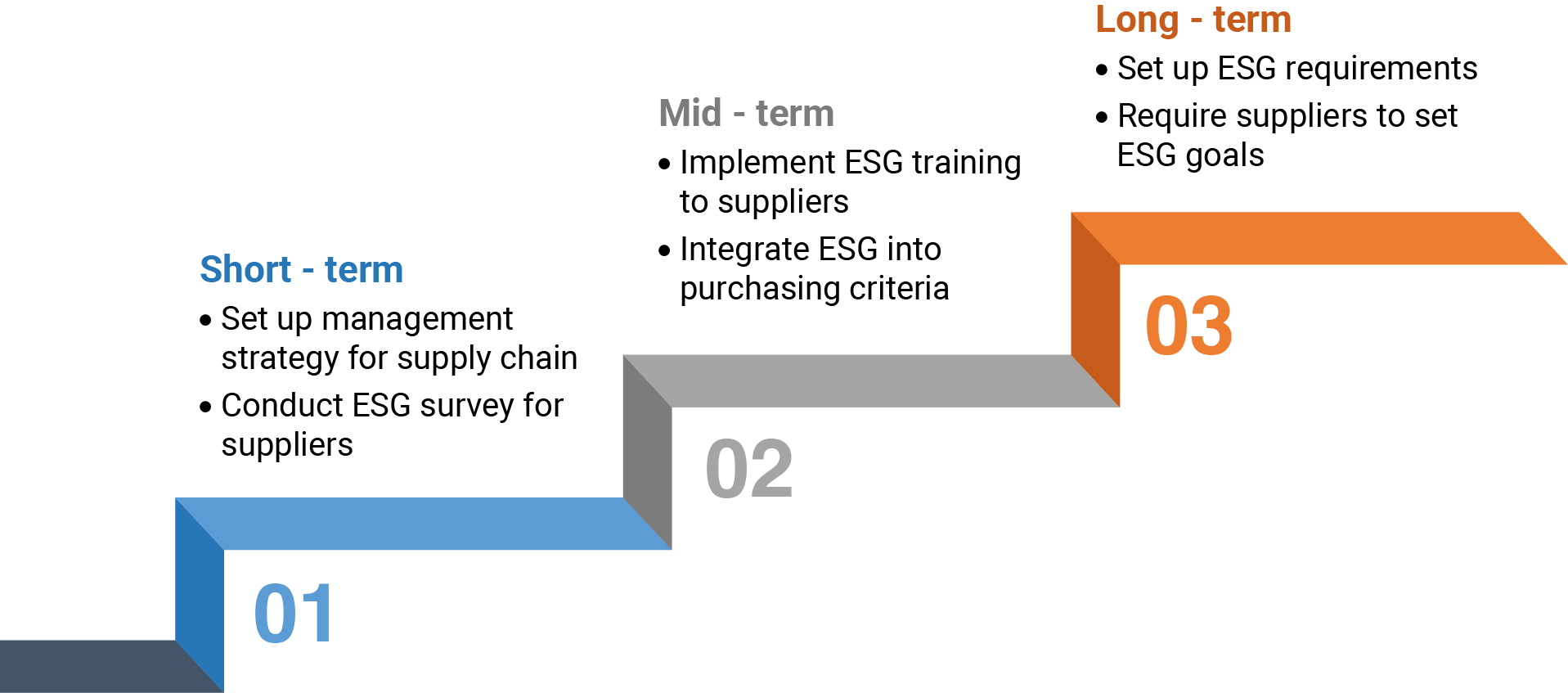

Oneness Biotech teams up with suppliers to create sustainable enterprises. The Supplier CSR Commitment Letter has been formulated with reference to the related international initiatives and requirements, including the UN Global Compact, the Universal Declaration of Human Rights, and the UN Framework and Guiding Principles on Business and Human. All the suppliers are required to sign the Letter. As of the end of 2024, a total of 52 suppliers have signed the Commitment Letter. The main contents of the Letter include the following sustainability-related items:





Supply Chain Sustainability
Inadequate management of Environmental, Social, and Governance (ESG) risks in supply chains can expose businesses to financial losses, diminished brand trust, and regulatory compliance risks. The International Labour Organization (ILO) has also highlighted the persistent issues of labor rights violations within global supply chains. Such challenges not only tarnish a company’s corporate social responsibility image but also increase the likelihood of legal disputes and operational disruptions.
Amid increasingly stringent global regulations and heightened stakeholder scrutiny, sustainable supply chain management has become a critical strategy for enhancing business resilience and competitiveness. To address this, the Company not only focuses on traditional management metrics such as quality, cost, service, and delivery but also incorporates suppliers’ ESG performance into its risk assessment framework, thereby enhancing the overall sustainability of the supply chain.
Sustainability Due Diligence in Supply Chains
The Company has undertaken comprehensive due diligence for supply chains, incorporating issues such as labor rights, ethical business practices, and environmental impacts into key supply chain management considerations. In addition to requiring new suppliers to sign a “Corporate Social Responsibility Commitment” to adhere to relevant regulations, we conduct annual sustainability risk assessments to analyze suppliers’ ESG risks.
The results of these assessments are integrated into supplier risk evaluations and serve as an important reference for future procurement strategies, ensuring the supply chain works collectively toward sustainability goals. For high-risk suppliers, we conduct on-site audits to provide recommendations and support improvements, ultimately enhancing their ESG performance and strengthening the resilience of the supply chain.
To enhance suppliers’ sustainability capabilities, the conference featured the following key sessions:
Through this Supplier Conference, the Company aims to collaborate with suppliers in building a more resilient and sustainable supply chain, achieving the shared goal of “mutual success and the creation of shared value.”

※The above content is taken from the ESG Report